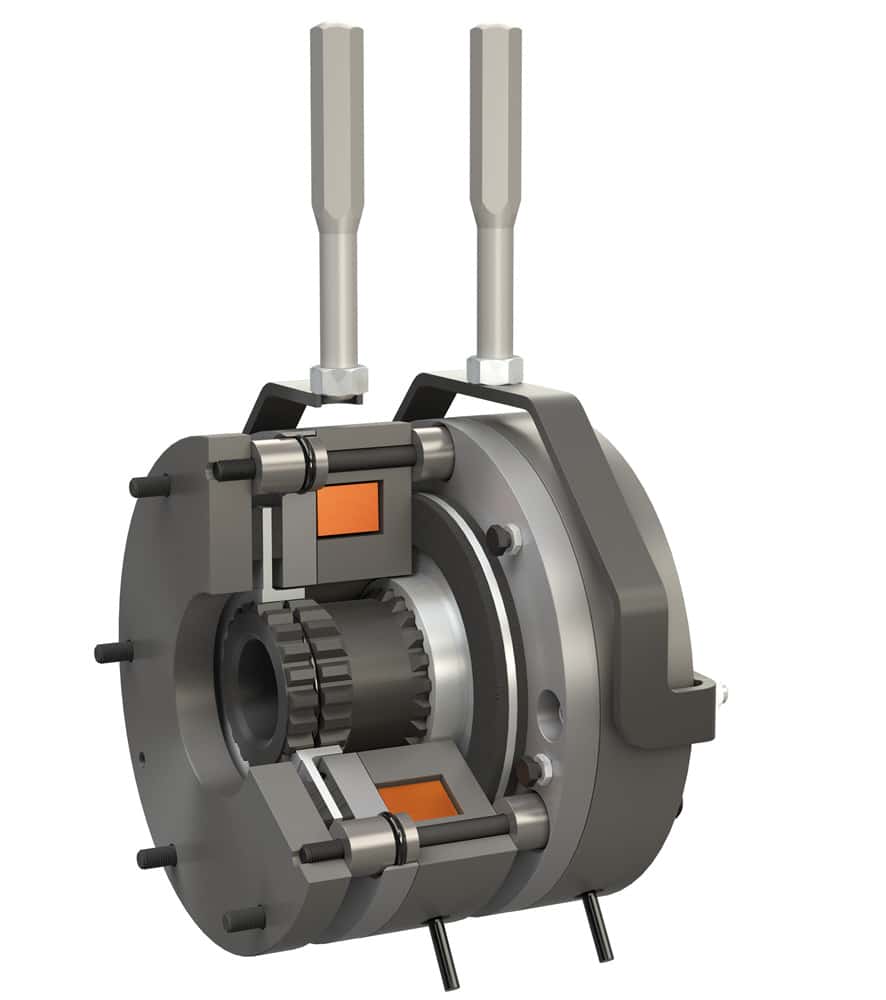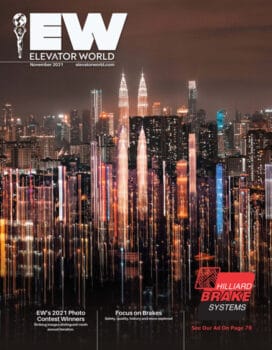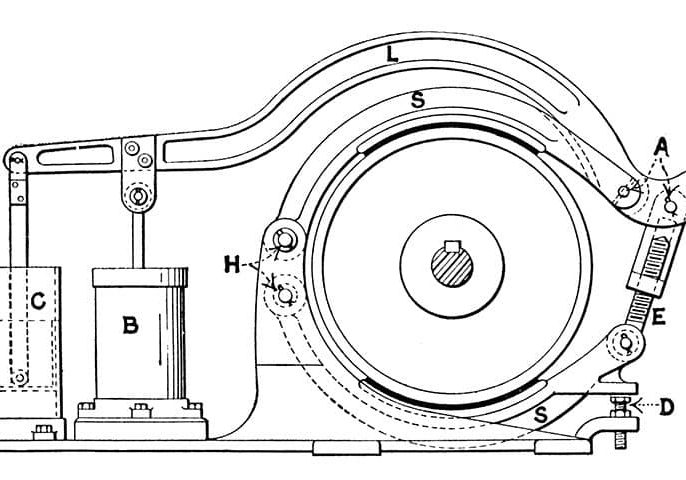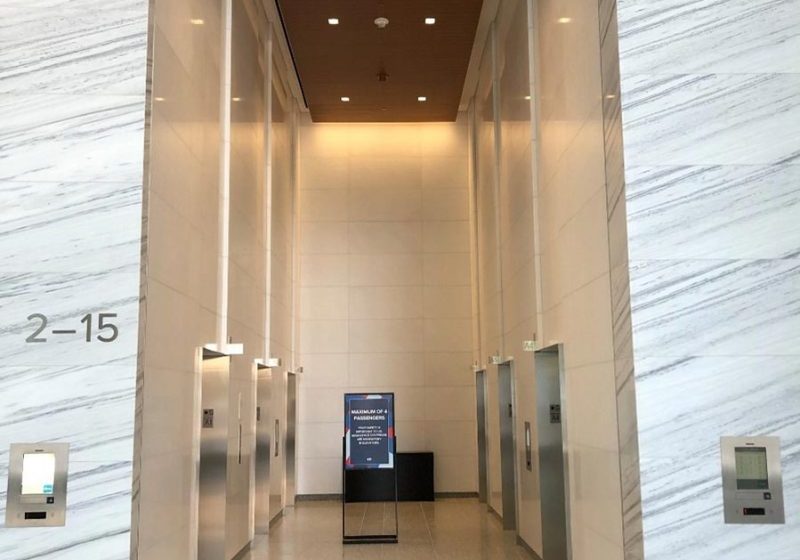Elevator Safety Requires Quality
Nov 1, 2021

In this Readers’ Platform, long-time manufacturer mayr offers advice on choosing the correct brake.
submitted by mayr
The global effects of competition in the elevator industry have repeatedly given price a major role, even for extremely safety-relevant components. Internationally, the price/performance ratio for these products is very similar; for this reason, performance and reliability are frequently compromised in an effort to provide low-price products. Industry leaders, however, do not compromise on safety — they make safety and reliability No. 1. Taking safety brakes as an example, this article shows how a well-founded selection of reliable products can be manufactured in spite of an intense competitive market and explains what the elevator designer or contractor should consider, to avoid “unpleasant surprises.”
Globalization of the elevator drive market has made this industry enormously competitive, particularly in China, which is by far the biggest market for elevators. The resulting problems of production in countries that have low production costs have caused an enormous amount of competitive pressure, even with safety-critical elements. Years ago, a clear commitment to reliability and the best quality was seen. Now, when talking to market participants, it becomes more and more obvious that price has top priority.
Normally, the leading global elevator manufacturers compile detailed specifications based on very detailed application experience. The required components — for example, the safety brakes — can be adapted to the application very quickly and can be evaluated through intensive tests in labs and in the field by multinational companies. This, however, is not applicable to the supplier industry in its entirety. For example, motor manufacturers that do not obtain the corresponding feedback via field data, and that do not have the necessary resources to employ a substantial engineering team, often work with simple means to specify and test a brake. Most elevator components are launched on the market by medium-sized companies with a lot of experience. The accident and malfunction statistics regarding passenger lifts confirm that technically high-quality products that have been tested beforehand in an appropriate and reliable manner are provided by these companies.
Passenger elevators are among the safest means of transportation. Nevertheless, each accident and each breakdown should be considered an incentive for further improvement. Up to now, only a few experienced elevator brake manufacturers have been active on the market, with quality and reliability warranted through their respective competence. However, the rapid development, particularly in the Chinese market, harbors an enormous risk. The situation has changed fundamentally because of relatively new market participants that do not have a lot of experience. Which criteria can a manufacturer of elevator motors — especially in the field of gearless technology — apply in order to choose a reliable brake?
A company does not qualify itself simply by being able to manufacture brakes; well-founded experience with brakes for elevator drives is a must.
To begin with, the potential supplier should be considered thoroughly, just as in general purchasing. A company does not qualify itself simply by being able to manufacture brakes; well-founded experience with brakes for elevator drives is a must. Furthermore, the supplier should have a large selection of brakes that have been on the market for a considerable number of years. Only then is the company capable of knowing the risks and able to provide reliable products. Responsible handling of safety-relevant components also means a “state-of-the-art,” quality system, an unambiguous traceability of the parts and other standards for a modern, quality business.
New Technology
For more than 20 years, mayr® power transmission has been developing and producing elevator brakes. With the market launch of the product series ROBA®-stop®-silenzio®, ROBA-sheavestop®, ROBA-stop-Z®, ROBA-diskstop®, ROBA-duplostop® and numerous other application-optimized brake solutions, the company has installed completely new technologically advanced elevator brakes that meet the requirements of all existing and modern drive concepts.
During mayr’s work with non-European customers, the company realized that, very often, these quality criteria are not demanded, and the application-relevant certifications that are essential in Europe are not always required. For customers who install safety-relevant components — especially in markets where the quality philosophy is less established, and quality systems even less so — it is necessary to find a reliable partner. The customer’s goals should be to pursue ongoing development of quality improvements and to produce their own regulations and procedures that guarantee continuous quality and reliability of the products.
The cooperation with globally operating elevator manufacturers has shown that those large-scale enterprises go to considerable lengths to accurately specify the requirements for safety-relevant components and adjust them through elaborate testing procedures. And, because of practical day-in, day-out field experiences, these enterprises have a corresponding market input that makes it easier to consistently add detail as they work on the products or product requirements. This allows them to enter critical points into the qualification process.
Keep reading: Elevator Brakes 1895-1927
Smaller elevator companies or drive manufacturers that integrate safety brakes do not always have this direct feedback channel from the market. Smaller elevator manufacturers also do not have the same scope, and often only have regional application areas in which certain problems may rarely occur. When such drive manufacturers need reliable brakes, they tend to orient themselves toward points with which they are familiar. However, in the course of business development in other markets, they might be confronted with different conditions that bring up new problems.
It is extremely important that the performance values achieved in new condition are maintained over longer operating periods.

Turning Up the Heat
Take a situation of compact direct drives in elevators under glass roofs in hot regions. These units are subject to high external temperatures, with the maximum operational brake temperatures reaching 70°C or more. Such an increase in temperature will cause the material to expand, which can have costly or even fatal consequences. If, for example, a microswitch stops functioning correctly due to heat convection, an expensive service operation might become necessary. The costs for such an operation, especially if the machine is installed in foreign markets, can quickly amount to several thousand dollars. The assumed cost savings achieved by selecting a cheaper product are quickly lost to the additional expenditure for service operations. But this is only the lesser evil; if such occurrences also lead to liability cases, the consequences are considerably more serious. In addition to the costs, these safety problems, if severe enough, can even threaten the existence of the manufacturer of the complete systems.
When selecting a brake supplier, the evaluation of the company’s quality and reliability is important, but the product specifications and their adjustment to the required criteria are of the utmost importance. Here, it is especially important to ensure that the specified values are not only achieved in new condition, but that the running behavior over the entire service lifetime is also taken into consideration. Internal benchmark tests by mayr have shown that the behavior of brakes in operation, for example, can fundamentally deteriorate.
It is extremely important that the performance values achieved in new condition are maintained over longer operating periods. If an elevator’s machine is located close to living space, distracting noises can cause complaints and follow-up costs. The people concerned will hardly accept the elevator becoming considerably louder after a relatively short operating period. For example, safety brakes with simple elastomer damping can easily be mounted so that they achieve acceptable noise levels in new condition, but these values will not stay constant over an adequate service lifetime. On standard market brakes, a substantial increase in noise value can occur after only 100,000 switching actions. This service lifetime is totally unacceptable in the field of elevator technology.
Among other things, it is not common knowledge that temperature influences the damping and noise behavior. If the brake is energized over a long period of time, an operating temperature of approximately 60°C may be produced. This causes simple rubber elements used for noise damping to expand, which improves the noise behavior. A brake operating at such a temperature does not cause problems during noise measurement. During product presentations, too, this can make it easier to present the noise behavior of brakes as being considerably better than it probably will be in reality.
In the long run, however, such solutions will satisfy only a few customers. The experiences mentioned above have obviously already prevailed even in “new” markets, to the point that leading drive manufacturers have also begun to rely on quality products. Unfortunately, it cannot be ruled out that, in addition to the certified quality products, reproductions that do not offer the necessary reliability are also used. It is therefore necessary to specify appropriate brakes and make sure these are actually used. This can be done by checking the Type tag, which ensures that the most important components offer the expected reliability.

Get more of Elevator World. Sign up for our free e-newsletter.









